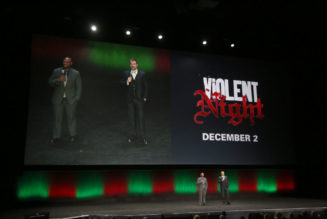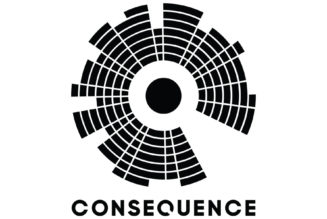The much-discussed favorite in the album of the year category going into the 64th Annual Grammy Awards on Sunday night (Apr. 3) was undoubtedly Olivia Rodrigo’s Sour, the blockbuster debut effort from 2021 breakout singer/songwriter Olivia Rodrigo. But it wasn’t Sour, nor similarly well-performing and critically acclaimed sets from Taylor Swift, Billie Eilish, Lil Nas X or Doja Cat, that took home the top honors on the evening. That distinction instead was accepted by Jon Batiste, the veteran do-everything jazz-soul artist, for his We Are album — a No. 86-peaking set on the Billboard 200 albums chart, with only a handful of mainstream reviews to its credit.
How did an album with such relatively modest commercial and critical success triumph over so many of 2021’s biggest albums? Here are five reasons that might begin to explain it.
1. Nomination momentum. A little meta here, but sometimes recognition breeds recognition with award shows — and going into the voting, no artist was more recognized in the nominations at this year’s Grammys than Jon Batiste. The singer/songwriter/instrumentalist scored a staggering 11 nods for the evening, including an additional Big Four nomination in song of the year (for “Freedom”), and genre nods that ranged from best R&B performance to best improvised jazz solo to to best American roots song.
Such a large number of nominations (three more than any other artist on Sunday) is bound to grab attention, and perhaps a number of ballots from future voters who might’ve otherwise not been familiar: If you’re doing some light research but don’t have time to check out all the nominees you don’t already know, you’d be more likely to check out the artist with 11 nominations than one with just a handful (or only the one, in the case of Taylor Swift and Evermore). You might also be more likely to vote for them, since anyone with that many nominations clearly has some chance of winning the top prize.
2. Musician’s musician. As with Jacob Collier’s unexpected AOTY nomination for the 2021 awards, we forget sometimes that the Grammys aren’t primarily a vote of music fans or even of music critics or commentators, but of music makers themselves — performers, writers, producers, instrumentalists and others. Jon Batiste is basically all of those: He performed on and co-produced all of We Are, wrote or co-wrote all but a couple of the album’s tracks, and played bass, keyboards, piano, strings, mellotron and even the theremin (!!) over the course of the LP. It’s an extremely impressive one-man effort throughout, and one that is surely even more staggering if you’re a fellow performer, writer, producer and/or instrumentalist, with perhaps an even greater sense of the full magnitude of Batiste’s effort and achievement on the album. (And while the album wasn’t covered extensively in many publications, it did generally receive good notices when reviewed.)
3. Alt-pop singer-songwriter overlap (and burnout?). Pop singer-songwriters (with a little bit of alternative edge) have triumphed in album of the year for each of the past two years, with Taylor Swift’s Folklore taking home top honors in 2021 and Billie Eilish’s When We All Fall Asleep, Where Do We Go? doing so in 2020. Both of those artists were nominated again in 2022 (Evermore for Swift, Happier Than Ever for Eilish), as of course was Rodrigo, who in many ways could be considered the artistic progeny of those two megastars. Whether the three artists ended up siphoning votes from one another this year, or whether their general dominance over the past few Grammys (Kacey Musgraves’ Golden Hour, not a world removed from these albums, also secured the top prize in 2019) just left voters craving something a little different, the presence of all of them may have been a minor hinderance to any one of their individual chances.
4. Wide-ranging demographic ownership. We also sometimes forget as music fans — particularly mainstream, pop-oriented music fans — that it’s not just pop-world Recording Academy members who vote in these awards. It’s also musicians and behind-the-scenes creators from R&B, from jazz, from roots genres, even from instrumental score composition: all of which, by the way, were fields where Batiste was nominated last night. If you’re a voter who wasn’t necessarily interested in contemporary pop stardom, you really only had one artist to vote for — unless you count Tony Bennett, nominated alongside modern hitmaker Lady Gaga for their relatively slight vocal jazz collaboration Love For Sale. That’s a lot of diffuse votes for Batiste to potentially scoop up, and based on Sunday night’s results, it appears he got a lot of them.
It’s hardly unprecedented in Grammy history — even in this century, where veteran non-pop performers like Herbie Hancock (River: The Joni Letters, 2008) and Alison Krauss (Raising Sand with Robert Plant, 2009) and even the American roots compilation soundtrack to the Coen Brothers’ O Brother, Where Art Thou? (2002) have all emerged victorious in album of the year. However, with winners the past decade generally coming from more contemporary mainstream artists, it might’ve taken a combination of a crowded year and the recently expanded Big Four categories (from five nominations to eight to now 10 this year) for the timing to be right for another unexpected winner from totally outside of the top 40 sphere.
5. Industry connections. Even if you’re not necessarily the biggest pop star, it always helps to be an artist everyone knows and everyone likes, for one reason or another. That’s certainly the case with Batiste, who also straddles the worlds of film (co-composing the soundtrack to Soul along with Trent Reznor and Atticus Ross) and TV (serving as bandleader on The Late Show With Stephen Colbert), and is a regular performer at award shows and tribute concerts, as well as charity and social awareness events. And speaking of The Late Show — it’s also worth noting that Ross was essentially playing for the home team on Sunday night, with the same network who broadcast the Grammys (CBS) also hosting his main nightly gig. Every little advantage matters during award season, and for Batiste, they added up to the most surprising (if still largely explicable) album of the year win at the Grammys in many years.
[flexi-common-toolbar] [flexi-form class=”flexi_form_style” title=”Submit to Flexi” name=”my_form” ajax=”true”][flexi-form-tag type=”post_title” class=”fl-input” title=”Title” value=”” required=”true”][flexi-form-tag type=”category” title=”Select category”][flexi-form-tag type=”tag” title=”Insert tag”][flexi-form-tag type=”article” class=”fl-textarea” title=”Description” ][flexi-form-tag type=”file” title=”Select file” required=”true”][flexi-form-tag type=”submit” name=”submit” value=”Submit Now”] [/flexi-form]











Tagged: Awards, entertainment blog, Grammys, music, music blog